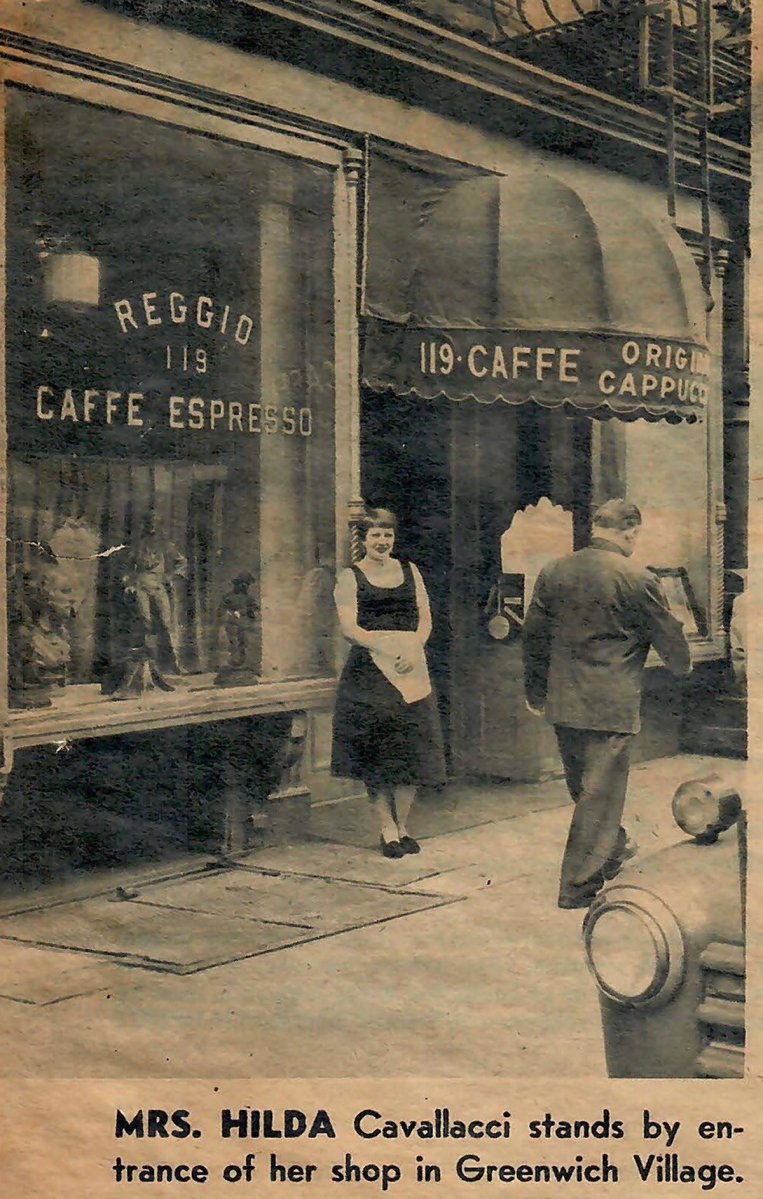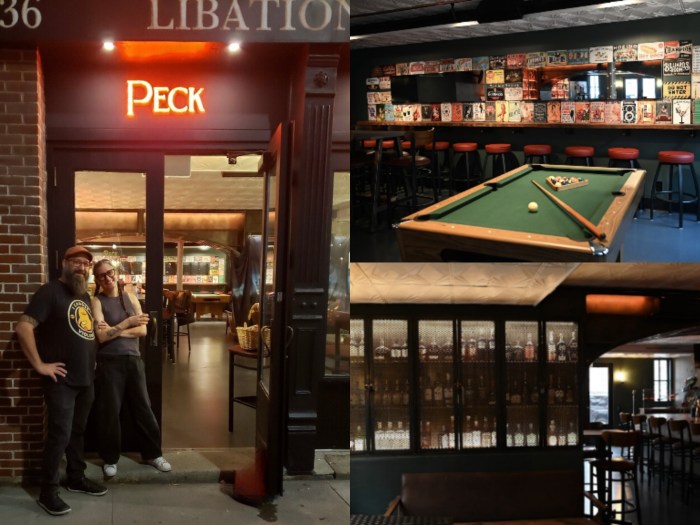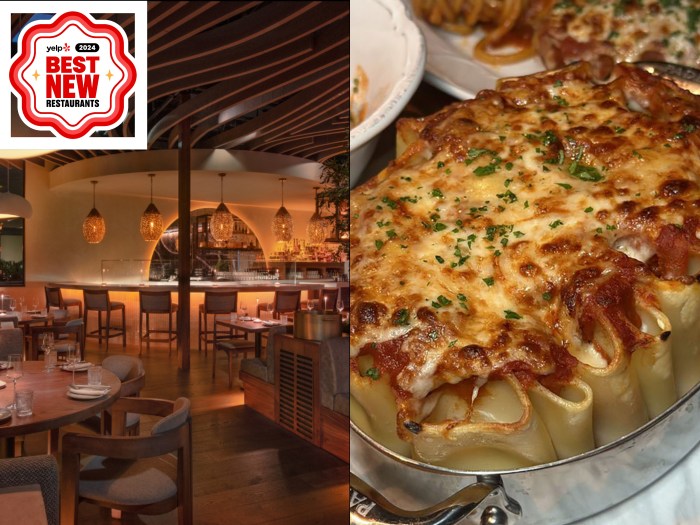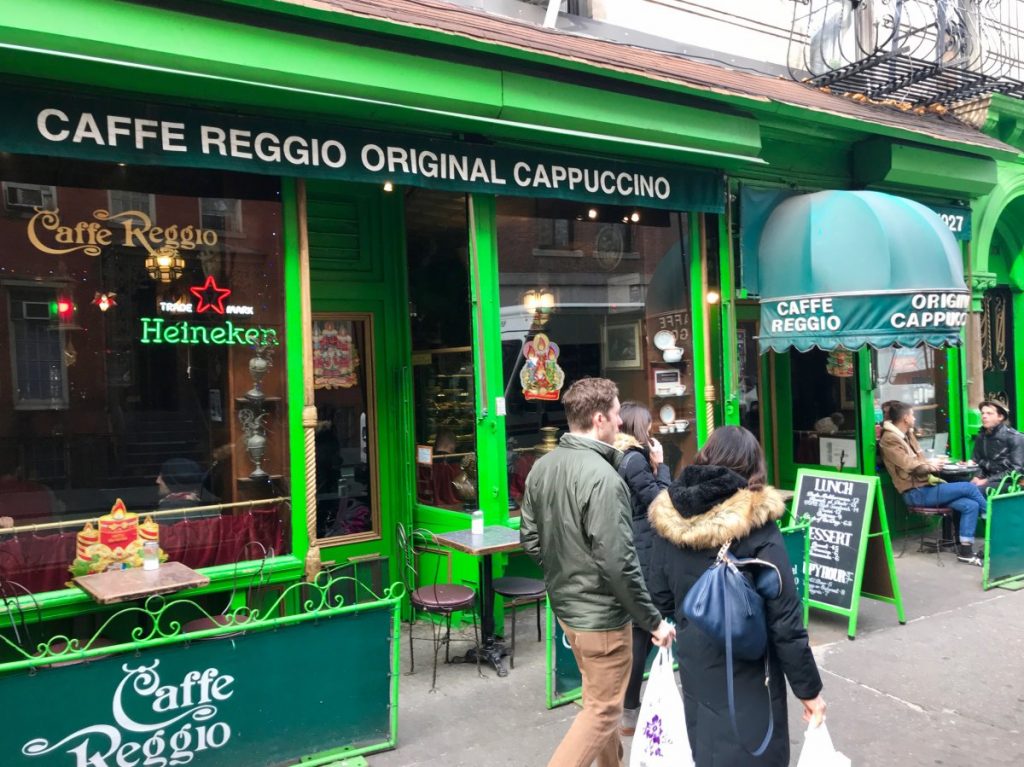
BY GABE HERMAN | Very few Village establishments have survived the trying tests of times, including rent hikes and passing fads, like frozen yogurt, ramen and beyond. Even fewer of the survivors have remained family owned.
Caffe Dante, at 79 MacDougal St., for example, was sold after 100 years to an Australian company, which made alterations and changed the name simply to Dante.
Caffe Reggio is a rare holdout that is still going strong under family ownership. It has been at 119 MacDougal St. since 1927, and started out as a barbershop run by Dominic Parisi. He soon began serving espresso and found the location’s destiny.
Parisi sold the cafe in 1955 to the Cavallacci family, and Hilda Cavallacci ran it until 1976, when her son and current owner Fabrizio took over.
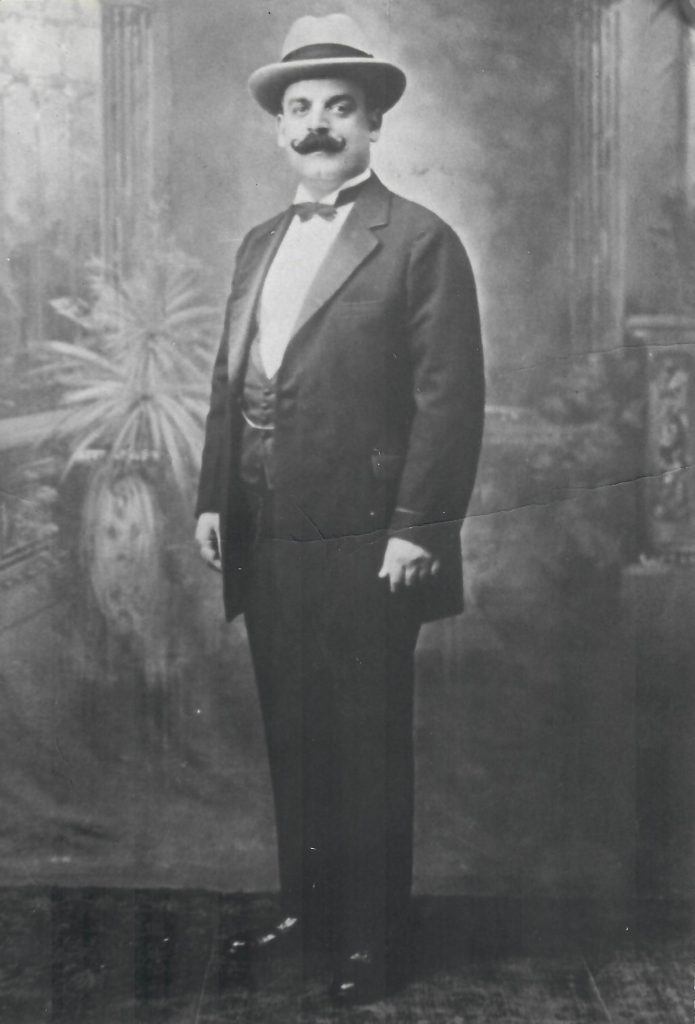
Reggio still has many neighborhood regulars, along with getting its fair share of tourists. Longtime regular Joseph Marra, 85, who ran the Night Owl Cafe on W. Third St. for years, said Reggio has survived because Cavallacci owns the building.
That’s how a family business can make it, with Raffetto’s pasta shop nearby on W. Houston St. being another rare example. Le Figaro Cafe closed in 2008 at 184-186 Bleecker St. after its rent shot up to $40,000 a month, Marra said. Le Figaro was bought by a corporation in 2004, according to The New York Times.
Even local shops with reasonable landlords still have to deal with increasing real estate taxes to go along with rents and other fees. Tea & Sympathy, at 108 Greenwich Ave., as The Villager recently reported, has started a GoFundMe online fundraiser for owner Nicky Perry to cover such costs.
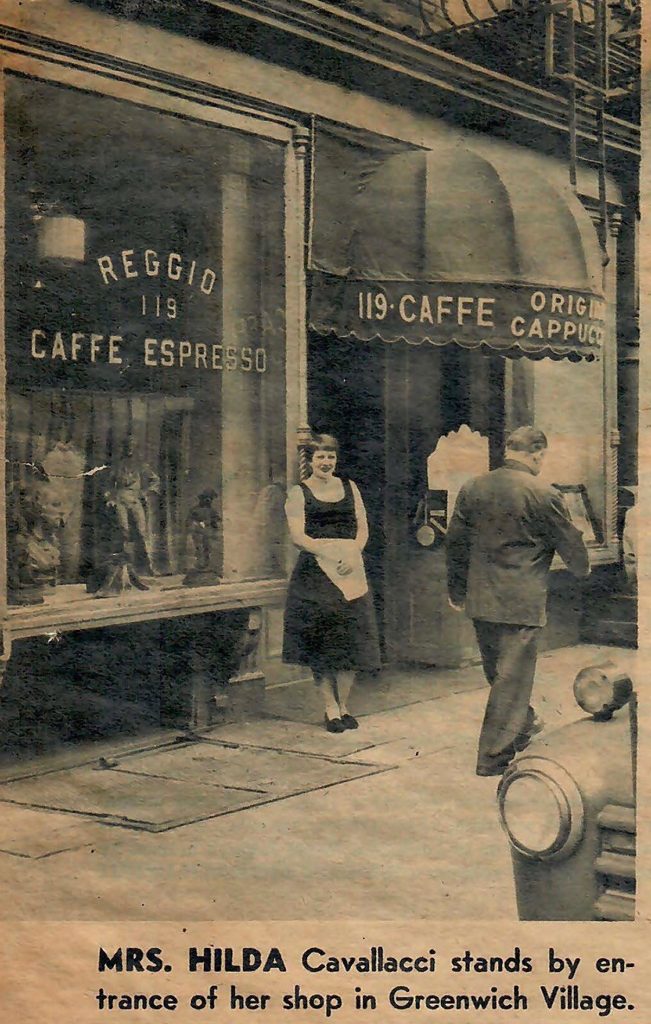
But Caffe Reggio seems to be in a better position because Cavallacci owns the building. General manager Lena Batyuk noted that the cafe has been willing to change with the times, now offering brunch and new milks, like almond, coconut and the very popular oak milk, for example. Of course the cafe continues to serve classic espresso drinks, including cappuccino, with the cafe claiming it was the first place to serve it in America.
“We try to adapt as much as we can,” said Batyuk, who has been there for 12 years. “One of those things is the avocado toast,” she said with a laugh. The cafe also offers free WiFi.
But much of the cafe’s appeal still lies with its unchanging character. Its interior sports old Italian paintings, one from the Caravaggio school, a ceiling fan used in filming “Casablanca,” and a nickel-plated behemoth espresso machine from 1902 that was used in the cafe until 1981. Batyuk said it actually still works, but just isn’t as efficient as modern equipment.
“You can see pictures from the ’50s and it’s basically the same,” Batyuk said of the cafe. She recently served a group who attended New York University in the ’50s and were regular Reggio customers, and remembered coffee made from the original espresso machine.
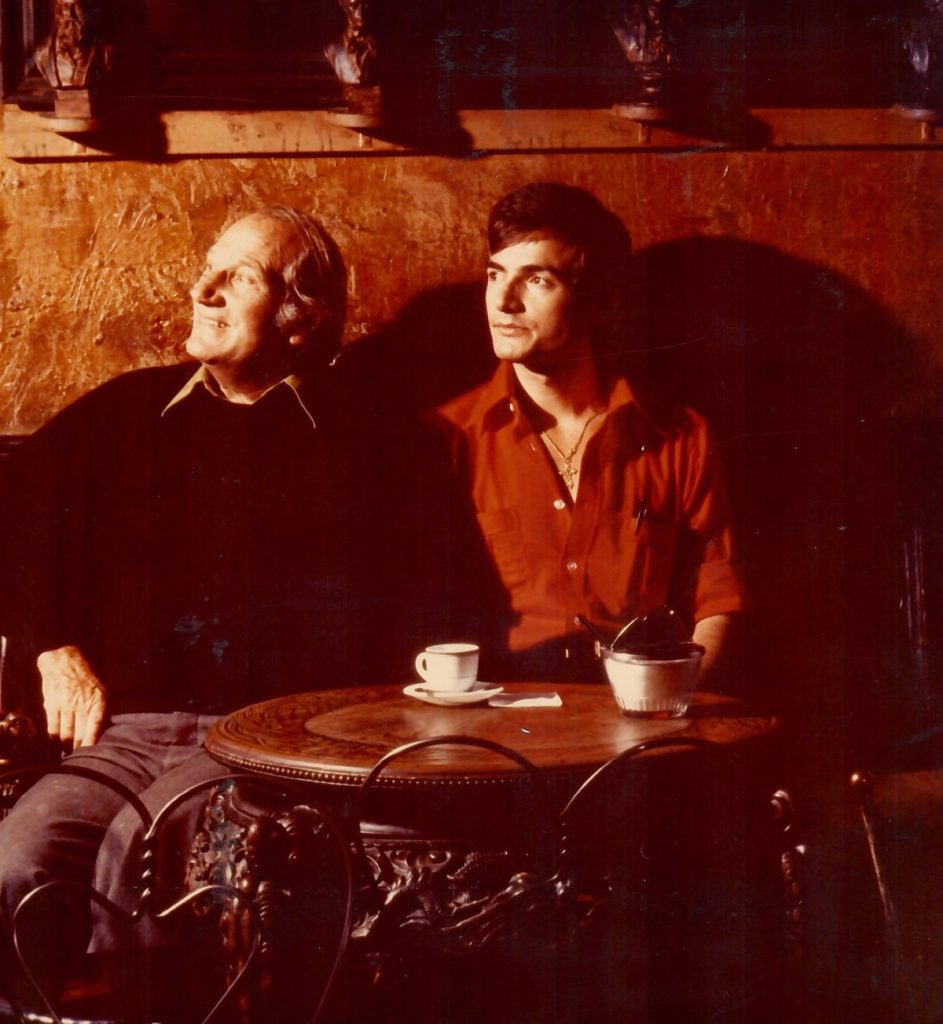
Of course, N.Y.U. has greatly impacted Greenwich Village over the decades, and not for the better according to many locals, including Marra.
“N.Y.U. changed the neighborhood,” he said. “You don’t have that sense of community anymore.”
As Marra sat in Caffe Reggio on a recent morning — he comes every Wednesday and Saturday — he noted there was no music playing.
“Places play loud music and the radio, you can’t talk to people,” said. “Here they don’t play anything, so you can have a conversation and connect.”
Marra first came to Caffe Reggio with his father when he was 6 years old.
“It’s the same, the interior is authentic,” he said.
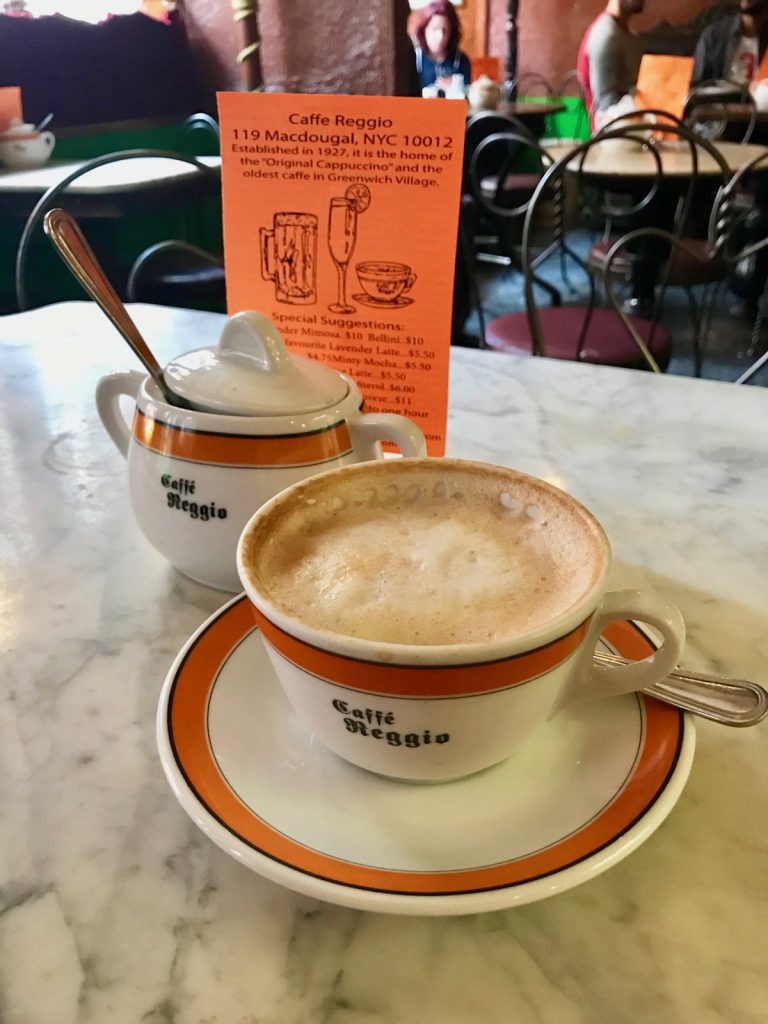
That charm is what keeps bringing TV and film shoots to the cafe, recently “The Marvelous Mrs. Maisel” and “The Deuce” from TV and the movie “Inside Llewyn Davis,” to add to classics filmed there, like “The Godfather Part II” and “Shaft.”
Many celebrities and legends have stopped by over the years, and continue to drop in. Most recently, Carey Mulligan was a regular while she was in a play around the corner, Batyuk said. David Bowie called Reggio one of his favorite spots in his adopted city.
Owner Fabrizio Cavallacci lives in Italy and visits the cafe every year for a few weeks, Marra said.
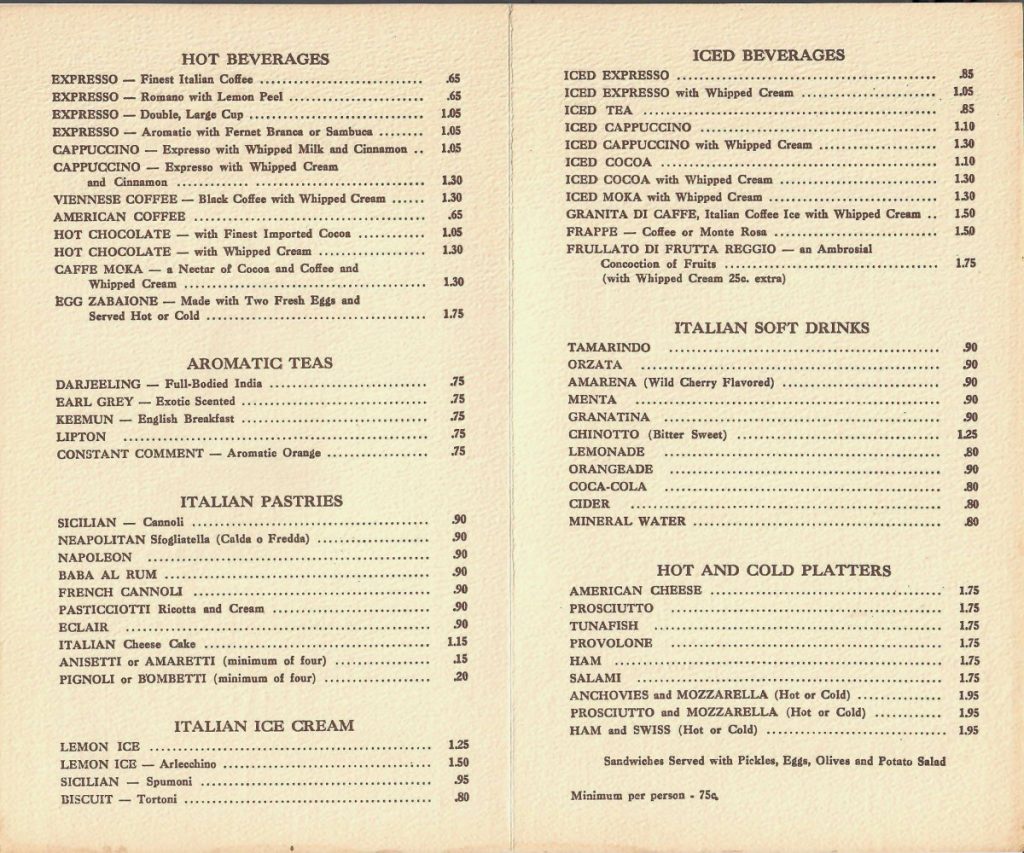
Through messages relayed to Batyuk, Cavallacci said he will definitely keep ownership of Reggio for the rest of his life, and there is no price he would sell it for. He said he has been at Reggio and on MacDougal St. his whole life, and that it’s more than just a restaurant to him.
“He’s in his 50s, but he’s an old-school guy,” Marra said.
The combination of sentiment in appreciating the past, and the practicality of owning the whole building, seems to be the winning formula for a family business to stay alive in the Village these days.



